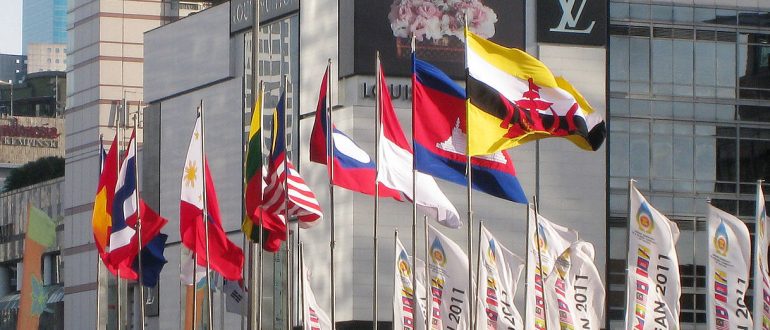
What ASEAN can Teach the EU
Southeast Asian nations are about to blow a big chance in their relations with the EU, according to an analysis by IFAIR member Kilian Spandler.
In 2017, the EU and ASEAN are celebrating 40 years of formal relations. Kilian Spandler, co-founder of IFAIR’s Impact Group EU-ASEAN Perspectives, used this occasion to take stock of a complicated relationship. In a contribution for The Diplomat, he writes that Southeast Asian countries have a historic chance to redefine their relations with Europe – but they are about to blow it.
For a long time, relations between the two organizations were highly asymmetrical. Even as the relationship expanded beyond the economic sphere and both sides committed to a partnership of mutual learning, EU policy-makers maintained the self-image of benign mentors for their Southeast Asian counterparts. “Ask those diplomats what exactly they would like to learn [from ASEAN], and the answer was usually vague or evasive”, Spandler writes.
It is a blessing for ASEAN, then, that the recent turbulences – pressure from populist and xenophobic reactions toward the increased immigration by displaced persons from outside the continent – are forcing the EU to look beyond its own nose for new political ideas. ASEAN finally seems to have found a unique selling point: its experience of dealing with the challenges of highly diverse societies. “Just like that, EU policymakers have become very interested in how countries like Malaysia, Singapore, and the Philippines managed to keep conflict between people of Malay, Sinic, and Indian ethnicity, Christian and Muslim belief, or indigenous and immigrant origin at bay”, Spandler writes. By actively advertising their experiences with socio-cultural heterogeneity as a model for the EU, ASEAN has started to cultivate its own ‘normative power’, which “brought the organization closer to the goal of an equal level playing field.”
However, Spandler notes that the reality in Southeast Asian societies is increasingly contradicting their politicians’ rhetoric of unity in diversity. Mounting intolerance and ethnically or religiously motivated violence in almost all ASEAN member countries are threatening the EU’s newfound appreciation of ASEAN as a source of inspiration. On this ground, Spandler calls on Southeast Asian leaders to send a clear message in support of pluralism: “ASEAN governments […] need to understand that they might be losing out on a big chance internationally if they continue to appease or promote the forces of division over reconciliation and tolerance at home.”
Read the full article on TheDiplomat.
